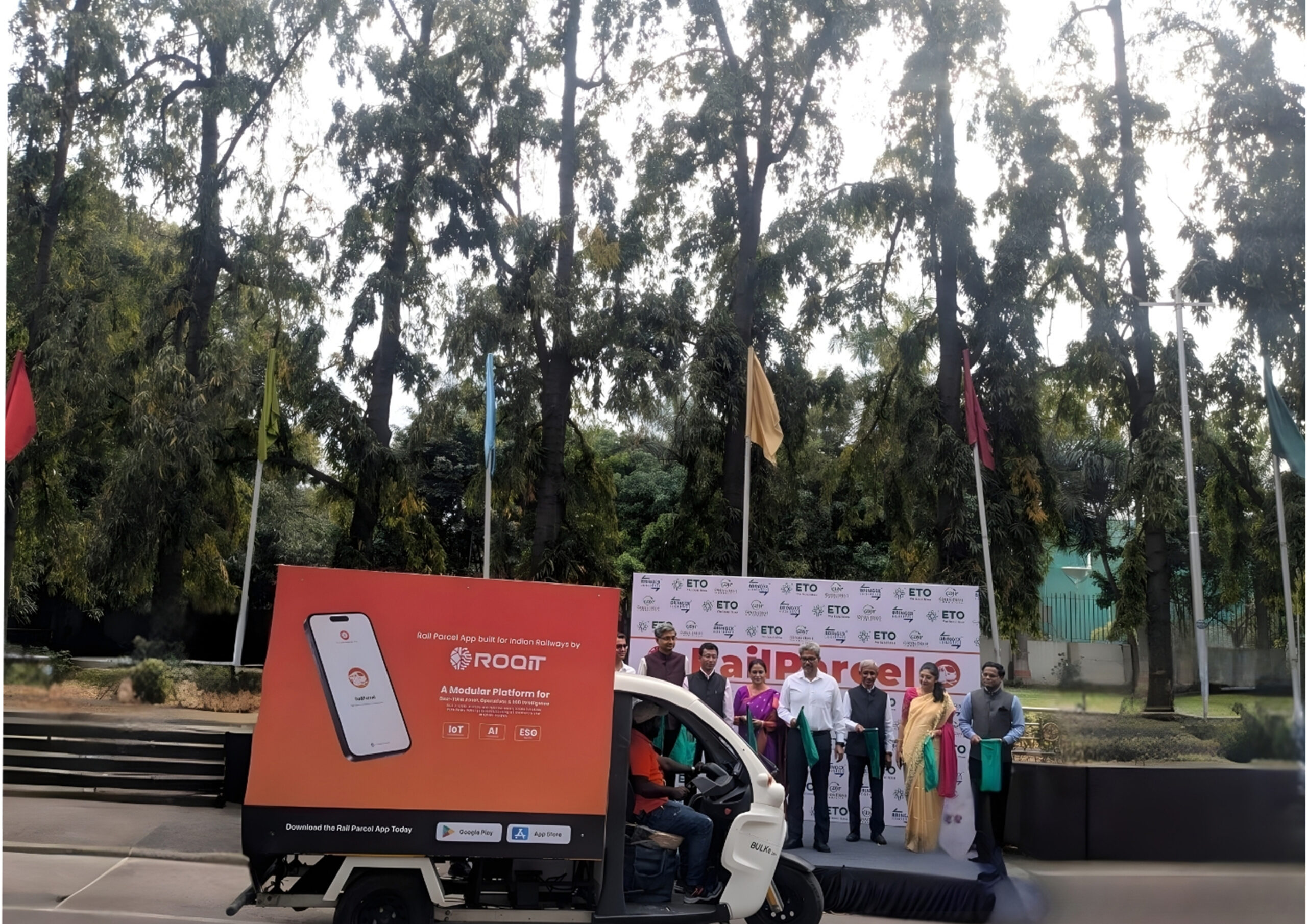
Lucknow: In a transformative step toward its $1 trillion economy vision, the Government of Uttar Pradesh has notified the state’s first-ever Global Capability Centres (GCC) Policy—positioning itself as India’s next hub for global digital and services economy. With this pioneering policy, Uttar Pradesh becomes the first Indian state to introduce the most comprehensive and targeted incentive framework exclusively designed for GCCs. It aims to attract multinational corporations across IT/ITeS, BFSI, telecom, healthcare, automotive, and emerging tech sectors such as AI, quantum computing, and fintech.
GCCs are offshore units of global companies that provide specialized services such as software development, analytics, customer support, R&D, and more. Recognizing the increasing global demand for such services, the UP GCC Policy sets the stage for large-scale job creation, regional economic development, and investment attraction. Backed by India’s most competitive package of fiscal and non-fiscal incentives, the policy supports the full lifecycle of GCC operations—from site selection and talent acquisition to skilling, innovation, and operational sustainability.
Key incentives include a 20% operational subsidy covering lease rent, internet bandwidth, power charges, and cloud services (up to ₹80 crore annually for advanced GCCs). Payroll subsidies of up to ₹1.8 lakh per UP-domicile employee and ₹1.2 lakh for others are available, along with ₹20,000 per fresher hired from UP-based colleges. Special incentives also support inclusion—providing full EPF reimbursement for women, SC/ST, transgender, and differently-abled employees. Additionally, the policy funds internship programs, skill development courses, R&D and Centre of Excellence (CoE) projects, and patent filing costs. It offers up to 50% land subsidy, full stamp duty waiver, capital subsidy up to ₹25 crore, SGST reimbursement, and interest subsidy on loans.
Uttar Pradesh is ideally positioned to lead India’s GCC expansion. With a talent pipeline of over 1.5 million annual graduates—including 60,000 engineers—the state combines low operational costs with fast-developing infrastructure, 5G connectivity, electronic manufacturing clusters, and the nation’s largest IT Park in Noida. Five cities—Noida, Greater Noida, Lucknow, Kanpur, and Varanasi—have been identified as strategic GCC hubs with plug-and-play infrastructure, world-class logistics, and policy-driven support via single-window systems like Nivesh Mitra.
Beyond incentives, the policy is a long-term strategic push to generate over two lakh high-quality jobs, foster innovation clusters in Tier-2 cities, reduce migration, and promote inclusive growth. It emphasizes flexible work models, ESG-compliant infrastructure, and higher women’s participation in the digital economy. With this initiative, Uttar Pradesh is not only attracting global enterprises but also building deep partnerships that align global capabilities with local strengths.
By becoming the first state in India to offer such an extensive GCC-centric policy, Uttar Pradesh is setting a new benchmark for ease of doing business, innovation, and employment generation—paving the way for its emergence as a premier global services hub.










amoxil for sale online – comba moxi amoxicillin cheap
amoxil online order – https://combamoxi.com/ cheap amoxicillin generic
purchase forcan – flucoan where to buy forcan without a prescription
order diflucan 100mg without prescription – this buy forcan generic
buy cenforce for sale – order cenforce pills buy cenforce 50mg
cheap cenforce 50mg – https://cenforcers.com/# cost cenforce 50mg
tadalafil citrate powder – ciltad genesis cialis tadalafil tablets
tadalafil generic in usa – click buy voucher for cialis daily online
typical cialis prescription strength – https://strongtadafl.com/ cialis strength
free cialis samples – https://strongtadafl.com/# cialis reviews photos
ranitidine 150mg canada – site buy ranitidine 300mg pills
purchase ranitidine online cheap – https://aranitidine.com/ buy zantac
viagra cheap overnight – https://strongvpls.com/# buy viagra 100mg
cheap generic viagra online – https://strongvpls.com/ generic sildenafil 50mg
This is the tolerant of post I recoup helpful. https://gnolvade.com/es/doxicicline-comprar-online/
More articles like this would remedy the blogosphere richer. efectos de neurontin
I am in point of fact enchant‚e ‘ to glitter at this blog posts which consists of tons of of use facts, thanks for providing such data. buy cheap generic amoxicillin
More content pieces like this would create the интернет better. https://buyfastonl.com/
Greetings! Extremely productive recommendation within this article! It’s the little changes which choice make the largest changes. Thanks a lot in the direction of sharing! https://ursxdol.com/azithromycin-pill-online/
Thanks for putting this up. It’s well done. https://ursxdol.com/prednisone-5mg-tablets/
Thanks on sharing. It’s outstrip quality. https://prohnrg.com/product/diltiazem-online/
This is the gentle of criticism I truly appreciate. https://prohnrg.com/product/acyclovir-pills/
More posts like this would create the online space more useful. ou trouver du viagra
Thanks on putting this up. It’s understandably done. https://aranitidine.com/fr/ciagra-professional-20-mg/
This is the tolerant of post I find helpful. https://ondactone.com/simvastatin/
This is a keynote which is in to my heart… Many thanks! Faithfully where can I find the phone details an eye to questions? https://ondactone.com/simvastatin/
This is the compassionate of criticism I rightly appreciate.
order meloxicam online
This is the gentle of literature I rightly appreciate.
https://proisotrepl.com/product/clopidogrel/
With thanks. Loads of conception! http://www.orlandogamers.org/forum/member.php?action=profile&uid=28882
Thanks on putting this up. It’s well done. http://iawbs.com/home.php?mod=space&uid=915030
buy dapagliflozin 10 mg for sale – on this site forxiga 10mg cost
purchase xenical – https://asacostat.com/ xenical 120mg cost
xenical over the counter – orlistat medication order xenical online
This is the big-hearted of scribble literary works I truly appreciate. http://zqykj.com/bbs/home.php?mod=space&uid=303476
Palatable blog you have here.. It’s intricate to find strong status writing like yours these days. I honestly comprehend individuals like you! Take guardianship!! http://www.predictive-datascience.com/forum/member.php?action=profile&uid=46008
You can protect yourself and your family close being heedful when buying panacea online. Some pharmaceutics websites operate legally and put forward convenience, privacy, bring in savings and safeguards for purchasing medicines. buy in TerbinaPharmacy https://terbinafines.com/product/lasix.html lasix
You can conserve yourself and your ancestors by way of being cautious when buying prescription online. Some druggist’s websites control legally and offer convenience, secretiveness, bring in savings and safeguards over the extent of purchasing medicines. buy in TerbinaPharmacy https://terbinafines.com/product/topamax.html topamax
More articles like this would remedy the blogosphere richer. TerbinaPharmacy
The thoroughness in this section is noteworthy. xenical 60mg brand
I couldn’t turn down commenting. Profoundly written!
Facts blog you have here.. It’s severely to find high worth belles-lettres like yours these days. I really respect individuals like you! Rent vigilance!!
best online poker real money
online casino gambling
real online casinos real money
betmgm Nevada https://betmgm-play.com/ betmgm UT
betmgm m https://betmgm-play.com/ bet mgm md
Transform downtime into profitable playtime. In crowncoincasino, automated bonuses trigger seamlessly. Automate your wins starting now!
Venture forth into realms of untold casino treasures. In crown coins casino login, treasure hunts add adventure. Hunt, find, and flourish!
Sweet Bonanza is bursting with juicy fruits and explosive multipliers ready to boost your bankroll. Trigger sweet bonanza winning strategy free spins with lollipop scatters and let the tumbles multiply your prizes. Get spinning today!
Why wait? Sweet Bonanza offers instant thrills with tumbling wins and multiplier madness. Trigger sweet bonanza the bonus round and chase those massive 21,000x+ payouts. Play now!
Charge your chance at casino immortality. buffalo aristocrat brings Aristocrat’s wilds, free spins, and golden jackpots eternal. Play today!
Power your play with buffalo brute force. buffalo gold collection free play features endless free spins, multipliers, and major payouts. Dominate!
Join Chumba Casino today and claim your free Sweeps Coins welcome bonus — chumba casino promo code! Spin the reels on top slots and enjoy real prize potential every single day. Fun starts instantly — play now!
Chumba Casino — more wins, more fun, zero purchase required. Get your free chumbacasinox today and spin the reels on top games. Real rewards await!
pragmatic play stake isn’t chasing trends — it sets them. Fastest growing crypto casino for a reason. Come see why.
stake crash Originals are — Crash, Plinko, Mines, Dice and more. Combine them with the best slots and live dealers online. Your next big win is one click away.
Crown yourself at DraftKings casino Casino. Play $5 today for 500 spins on Cash Eruption and up to $1,000 lossback. Elite casino thrills await!
DraftKings casino promotions Casino: Play bold, win big. Claim 500 Cash Eruption spins after $5 + up to $1K first-day protection. The best is here!